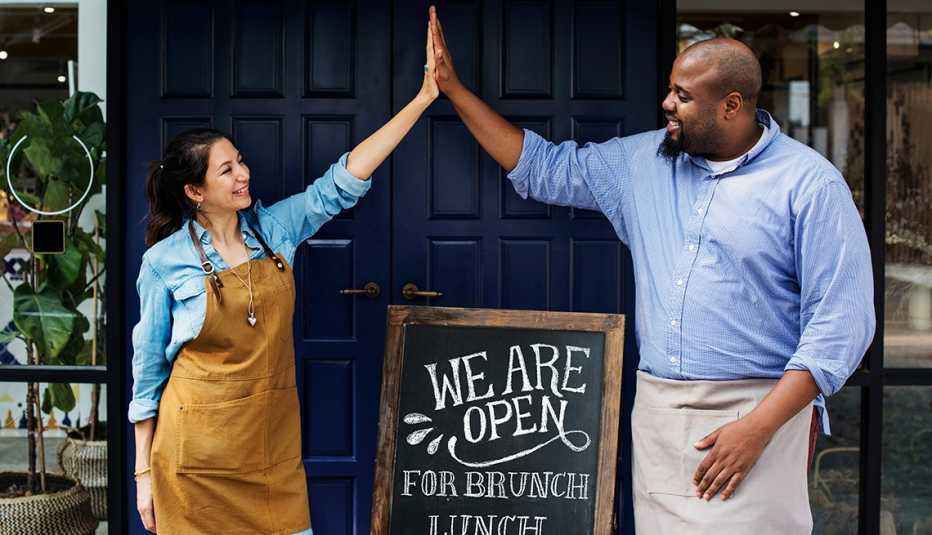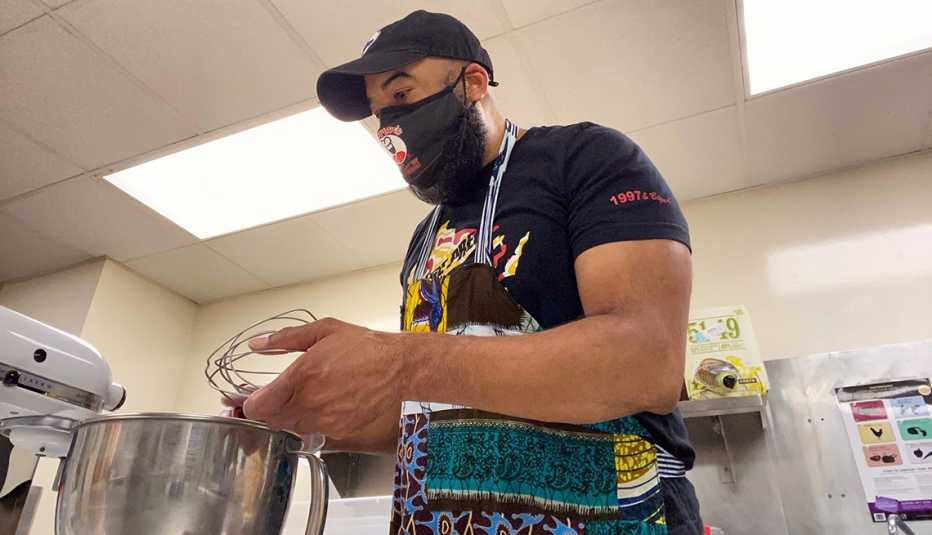Staying Fit
After 25 years working in the banking industry — some of which was spent helping small business owners achieve their dreams — Monica Eboda decided that it was time to pursue her own ambitions. She knew that she wanted to start a human resources business, matching the right workers with the right employers so both could grow together. But she also knew that becoming an entrepreneur at her age (or any age, really) could be a risky proposition.
“When I started my business, I was already in my 50s,” says Eboda. “When you're in your 50s starting a business, you're not in your 20s anymore. You really don't have the luxury of trying things out, then figuring things out, and starting and failing and starting over. You want to get it right.”


AARP Membership— $12 for your first year when you sign up for Automatic Renewal
Get instant access to members-only products and hundreds of discounts, a free second membership, and a subscription to AARP the Magazine.
After exploring a variety of options to start an HR business, Eboda decided to buy a franchise business. In 2015, she opened a PrideStaff franchise in Wilmington, Delaware. PrideStaff was founded in 1978 and currently has more than 80 franchises in North America.
“For me, I needed to go the franchise route starting out because I wanted something that I could take to market and gain traction quickly, where I wasn't alone and creating everything from scratch,” Eboda says. “To have the support of a franchise system, I needed that and that was very helpful so I was able to go into the marketplace and be recognized.”
Three steps to take when starting out
For many aspiring small business owners, purchasing a franchise business can be a fast lane to their entrepreneurial destination. With more than 3,000 franchise brands currently operating in the United States, there are business opportunities that could match the passions of almost anyone looking to start a business. From HR support services to fast food, real estate to home health care, bird-feed stores to upholstery repair, opportunities for hopeful franchisees seem almost endless.
And the initial investment to purchase a franchise business can be equally wide-ranging, stretching from $1,795 (a Dream Vacations travel franchise) to $3.7 million (a Wendy’s restaurant). Franchisees typically don’t have to pay that full amount up front, according to Eric Stites, CEO and managing director of the market research firm Franchise Business Review. Like homeowners making a down payment for a mortgage, new franchisees often have to provide only 25 to 30 percent of the initial investment — along with a franchise fee to the company — with the rest coming from business loans and other funding the franchisee can obtain.
That type of investment means that it’s crucial that franchisees do their research before buying, assessing both what it would take to operate a franchise successfully and also how comfortable they are with financial risks, including their retirement planning.
“Even though franchises have a much higher success rate than starting [a business] from scratch, they're not risk free,” says Jania Bailey, CEO of FranNet, a consulting firm that matches entrepreneurs with franchise opportunities. “There is absolutely [no franchise] that is fail-proof. Even well-known franchise brands that have been around forever, even their franchisees have failures. And unless a person can get their head around that and be comfortable with that risk, they shouldn't consider starting.”
Based on advice from successful franchisees and industry experts, here are three steps older entrepreneurs can take to choose and build a successful franchise business.
1. Focus on your passion
Before becoming an entrepreneur herself, Eboda was enticed by the enthusiasm she saw among the small business owners she worked with as a banker.
“You could see it in them, when they told stories about how they went about starting their business, what their passion was and how they owned their craft,” she says. “I knew at some point, this was going to be a path for me.”


































































